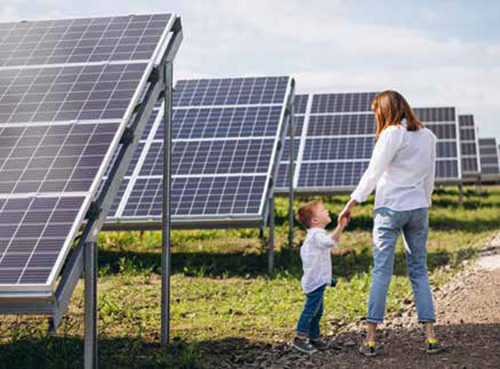The U.S. Department of Energy (DOE) announced a $40 million funding opportunity for the Small Business Innovation Research (SBIR) and Small Business Technology Transfer (STTR) programs. The Advanced Materials and Manufacturing Technologies Office (AMMTO) and the Industrial Efficiency and Decarbonization Office (IEDO) will be responsible for providing this funding opportunity, which they expect to award $4 million in Phase I test grants. The green transition to a clean energy future must be set in motion by every company and person on the planet. That’s why DOE is dedicated through its SBIR and STTR programs to helping thousands of small businesses and entrepreneurs develop the cutting-edge technologies needed to accelerate this transformation.
Small Business Innovation Research (SBIR)
MMTO and IEDO provide non-dilutive funding to small business research and development projects through the SBIR and STTR programs. They seek to improve energy efficiency and materials productivity. In turn, they also want to boost the decarbonization of the entire economy and the competitiveness of U.S. manufacturers.
Within the Phase I, SBIR and STTR topics will be selected and funded by the two bureaus to assist small business owners and entrepreneurs.
Advanced manufacturing technologies and materials
Advanced manufacturing technologies and materials will be the first funded topic . The Advanced Materials and Manufacturing Technologies Office is providing this grant. And they are focused on developing the next generation of materials and manufacturing technologies to support a clean, decarbonized economy. Within the topic are specific subtopics. Such as power electronics for energy- efficient electrification and electrode quality control at the chemical level for battery manufacturing. AMMTO seeks applications in relevant areas to enable advanced materials and manufacturing technologies: In addition to the specific subtopics listed above, AMMTO invites grant applications in suitable locations. That will allow next-generation materials and manufacturing processes and safe and sustainable materials.
Fuel cell and electrolyzer recycling
The second theme for the grant will be a conjunction between AMMTO, IEDO, and the Hydrogen and Fuel Cell Technologies Office. The theme is a fuel cell and electrolyzer recycling, which will seek to develop the manufacturing of innovative clean energy technologies. These technologies will advance new recycling processes for critical materials. They will also facilitate the widespread adoption of hydrogen production and use. This topic will have subtopics such as the efficient and sustainable recovery and reuse of materials from manufacturing waste in fuel cells and electrolyzers and the reduction of hazardous substances in the recycling of fuel cells and electrolyzers.
Decarbonizing agriculture, buildings, transportation, industry, and communities
The third is the theme of decarbonizing agriculture, buildings, transportation, industry, and their communities. Like the last theme, there is also a conjunction of offices. AMMTO, IEDO, and four other technology offices of the DOE’s Office of Energy Efficiency and Renewable Energy (EERE) will form this theme. Projects and research within this theme will help dramatically reduce carbon emissions throughout the U.S. economy, particularly in communities. Subthemes include the decarbonization of agriculture. Which will consist of the decarbonization of agricultural energy, decarbonization of buildings. Which will consist of direct air capture technologies for heating, ventilation, and air conditioning systems. The third sub-theme is transportation decarbonization, including low-carbon biofuels and energy-efficient mobility systems. Finally, industrial decarbonization will consist of conductive materials, heat pumps, and biomanufacturing.
Industrial Efficiency and Decarbonization
Finally, IEDO will fund the Industrial Efficiency and Decarbonization theme. The theme will focus on activities addressing decarbonization in energy and emissions-intensive industries and cross- sectoral industrial emissions technologies. It will have sub-themes on sustainable chemistry, where they will investigate the mitigation of hazardous chemicals in manufacturing processes. In turn, enhanced waste heat recovery through high- efficiency heat exchangers will be another sub- theme. And finally, IEDO will seek proposals to achieve industrial decarbonization. Especially those aligned with the priorities of the Industrial Decarbonization Roadmap.
It can be of your interest: January 2023 – The ESG’s impact around the world for the ecological transition


